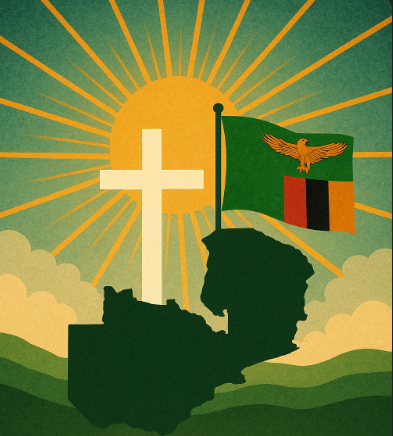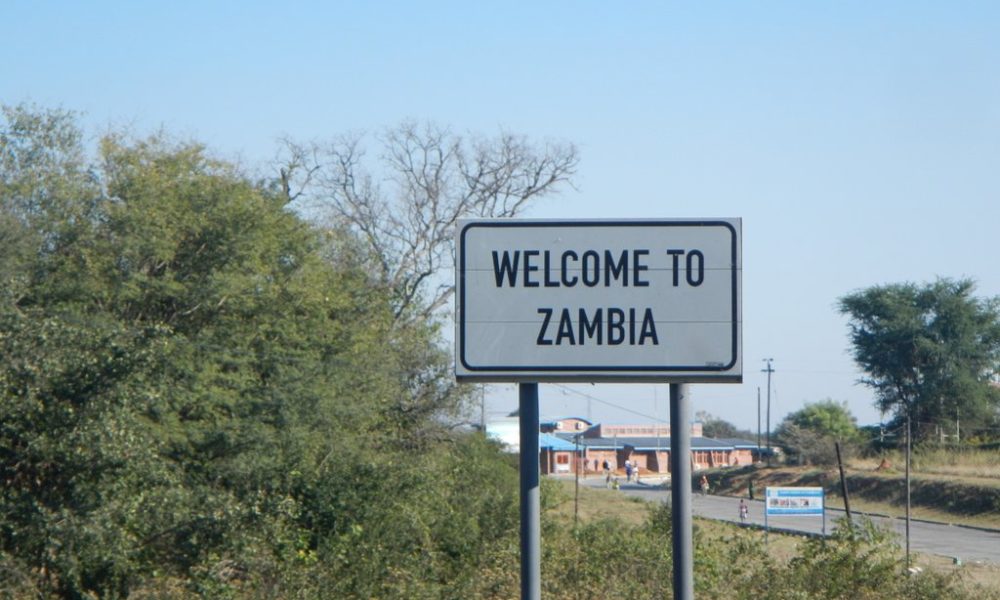By Chanda Chisala
Since Zambia is a Christian nation, a lot of controversial social debates often come down to “what’s the Christian thing to do?” Oftentimes, people still arrive at diametrically opposed answers to that question.
The Edgar Lungu burial impasse is one of those that have produced this theological impasse as different Christians assert that they have the correct moral position.
On one side are those who are saying that the Lungu family are wrong to insist that president Hichilema should be excluded from the funeral and burial, even if this is what was the wish of the deceased. They believe that as Christians we should “preach reconciliation and forgiveness” to this family and should not allow our Christian country to honor these family wishes that sound vindictive against the incumbent president.
On the other side of the Christian fence are those who believe that president Hichilema should have some empathy by staying away from the funeral if this is causing so much pain to the bereaved family. It is irrelevant whether their reasons for feeling tortured by his presence are justified or not, since this is really primarily their funeral. The man, after all, was firstly a husband and father, before he was president, which is why it is senseless for the Attorney General to suggest the funeral can take place even without his family.
The presidency was only a short temporary part of his life and when it was gone, he was still a husband and father. The reason the family of a president is always protected by the state is because we know that if someone captured his wife or child and demanded that he chooses to save them or his presidency, the president is likely to choose his own family first.
Some on the other side say that President Hichilema cannot stay away from the funeral even if he wanted to because protocol demands that he attends and officiates at a state funeral. This is obviously a false argument. The president can break any “protocol” he wants. He is the most powerful man in the nation and he can create a new protocol on the spot if he wants to. For example, he can welcome foreign dignitaries at the airport or at State House and let them go without him to the funeral venue. Protocol is just procedure and not law, unless legislated as such, which is why the president can always ignore or change it. In fact, the president is even able to ignore the directions of the Constitutional Court itself and get away with it (because the opposition do not have enough numbers in parliament to impeach him). How much more can he ignore a simple funeral protocol that is not even anywhere in the law?
The “reconciliation and forgiveness” group may have their heart in the right place, but they seem to have forgotten that Christianity does not force anyone to “do the right thing.” The fundamental ethical distinction of the Christian faith is that it allows an individual to make his own choices, and forbids the use of force to convert him (unlike, say, fundamentalist Islam). Yes, you can “preach” reconciliation to the Lungu family, but if they don’t want to do it, that’s their choice because that’s their life, not yours.
This is essentially the same debate that arose in the case of a young Tiktok “influencer” called Why Me, who gained fame by insulting the incumbent president and other politicians for failing to deliver on their campaign promises, and for allegedly being tribalist – which got him in even more trouble. There is a rumour that he has died in police custody after being captured and tortured by the police. In some of his wildly popular videos, he had ominously advised that if his followers saw no videos from him, they should know that he’s been murdered by the intolerant authorities. There have been no new videos from him for some months now.
Again, Christians were divided along the same lines about Why Me’s tiktok content. The “Christian culturalist” group declared that “free speech has limits” and we should not allow a young person to insult leaders and elders, especially with the disgusting words he was using. They warned that allowing this behaviour was not going to create the kind of society we want. Why Me responded that he was simply defending everyone’s right to free speech and that he was even willing to die for this goal. He saw that free speech as a superior value for our society.
Although it was clear from his constant grammatical errors that Why Me had very little education, he actually had an intuitive grasp of free speech ideology that was much more advanced than his educated critics. Free speech is not about speech that you find respectable and polite; no one needs protection for such neutral speech. Free speech protections against state arrest exist precisely for the kind of speech that people don’t like: the sort of offensive speech Why-Me was engaged in. He was not asking anyone to physically harm anyone; he was merely using unprintable terms to express his personal and political frustrations. And if you didn’t want to listen to him, you were free to simply ignore, block, unfollow him etc.
One prominent pastor argued that Why Me was free to think his offensive thoughts, but should not be free to express them as this is what we arrest people for. You would expect that Christian ministers and our so-called “Human Rights Commission” would be at the forefront of pressuring the government to repeal all unjust laws that lock people up for merely expressing their thoughts in offensive terms. They should even be the ones demanding that the authorities answer clearly if the young man, whose parents died when he was much younger, has indeed died after they captured him in a foreign country where he had run to for refuge. They should be demanding that the president set up an independent commission of inquiry to establish the truth.
But again, this can only become the norm if we all begin to understand the basic principle that is common to both the Christian faith and modern civilisation: we can’t force people to be nice if they don’t want to, and we are still obligated to protect their individual right to be not so nice, even to the president. The pastor is indeed also free to express his own opinion by preaching against people like Why Me who are not nice in their words to the president, or bereaved families that are not nice to him in their funeral invitations. But no one should support the use of state power to bully weak little orphans, until they are permanently silenced by those who think the president and his supporters’ feelings are more important than a poor boy’s life.
When you are on the side of exerting state power to torment innocent widows and orphans into forced submission to “Christian values,” maybe you should question whether you’re even on the side of Christ, let alone the side of common sense.
The author, Chanda Chisala, is the Founder of Zambia Online and Khama Institute. He is formerly a John S. Knight Fellow at Stanford University and Visiting Scholar to the Hoover Institution, a policy think tank at Stanford. He was also a Reagan Fellow at the National Endowment for Democracy (NED) in Washington, DC. You can follow him on Facebook at https://www.facebook.com/chandachisala





